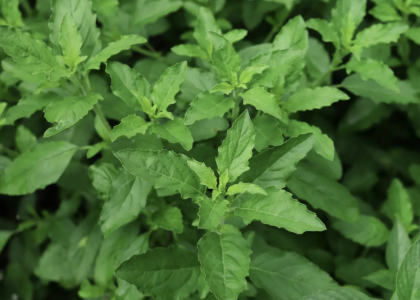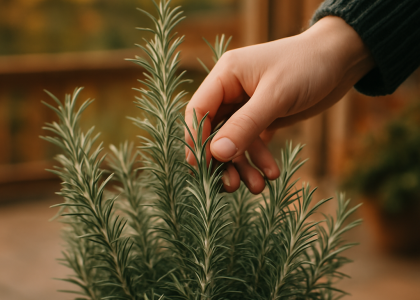There’s something truly magical about growing carrots. These humble root vegetables, with their bright orange color and sweet earthy flavor, offer more than just nutrition—they offer connection, healing, and joy. Whether you’re a city dweller with a sunny balcony or a suburban parent looking to bond with your children, planting carrots can be a beautiful entry point into the world of gardening.
The Charm of Carrots
Carrots are a visual delight, especially for kids. Their feathery green tops dance gently in the breeze, while their vibrant roots remain hidden beneath the soil, growing patiently with time. Watching your children pull up their first fully grown carrot is a moment of surprise and pride they won’t forget.
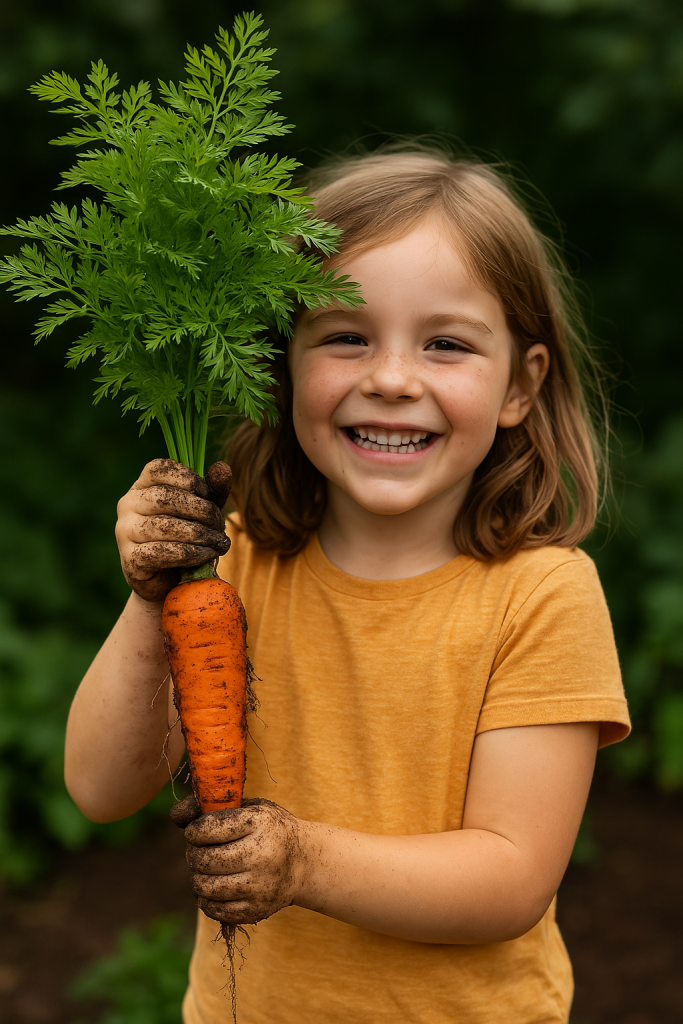
Understanding Carrot Habits
Carrots thrive in loose, well-drained soil with full sun exposure. They love cool weather and prefer to be planted in early spring or late summer. Unlike many plants, carrots don’t like being moved once they’ve started, so it’s best to sow seeds directly into their final growing place.
- Ideal pH: 6.0–6.8
- Soil depth: At least 12 inches deep to allow full root development
- Maturity: Most varieties take 65–75 days to harvest
- Recommended Varieties: ‘Nantes’ (sweet, crisp), ‘Chantenay’ (great for heavier soils), ‘Purple Haze’ (fun for kids)

Growing Conditions
Soil: Loose, sandy loam is ideal. Avoid heavy clay soils.
Sunlight: Full sun (6–8 hours daily)
Watering: Consistent moisture, but never soggy
Spacing: Thin seedlings to avoid overcrowding (2 inches apart)
Propagation: No Cuttings Needed
Carrots grow from seeds, not cuttings. For a fun twist with kids, you can regrow carrot tops in shallow dishes of water on a sunny windowsill. While they won’t produce new carrots, they’ll sprout leafy greens—perfect for teaching children about plant growth and recycling kitchen scraps.
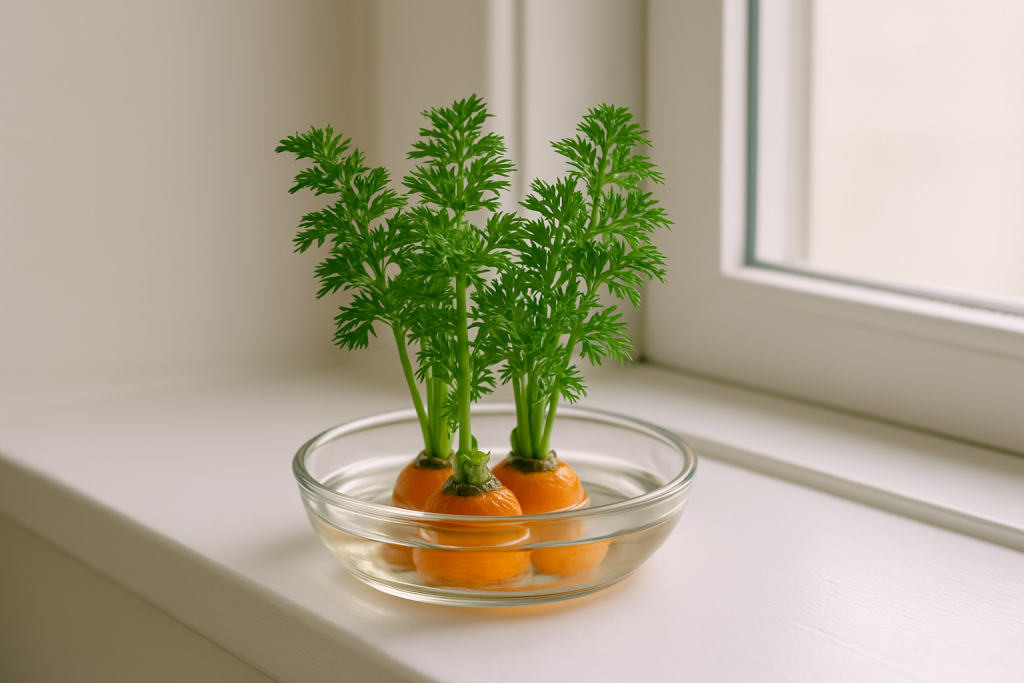
Pest & Disease Prevention
Healthy carrots start with healthy soil. Practice crop rotation and avoid planting carrots in the same spot every year. To keep pests at bay:
Use row covers to prevent carrot flies from laying eggs near your crops.
Introduce companion plants like onions and leeks to deter pests.
Water at soil level to prevent fungal diseases.
Remove debris and thin out overcrowded plants to improve air circulation.
Common carrot pests include aphids and carrot rust flies. For aphids, a gentle spray of water or neem oil can help. If dealing with carrot rust fly, harvest promptly and avoid soil disturbances that attract them.
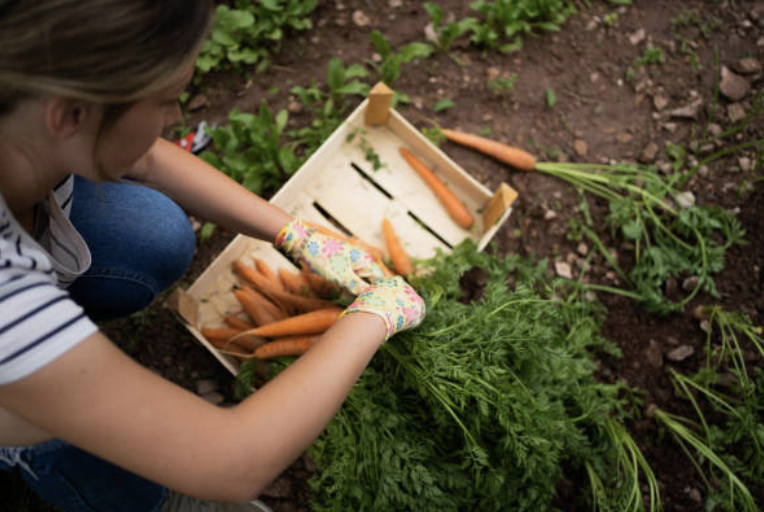
Making Carrot Gardening a Family Affair
Few gardening experiences are more rewarding for families than growing carrots together. Let your children sprinkle the tiny seeds, water them gently, and check on their growth daily. As the weeks pass, they’ll learn the value of patience, responsibility, and nature’s quiet magic.
You can even turn harvesting day into a mini-celebration: rinse the carrots together, taste them raw, or cook a simple dish as a family.
Bonus Printable: Download our “My Carrot Garden Tracker” — a fun coloring and growth chart for kids.
Wholesome Recipes to Try
Once your garden rewards you with fresh carrots, enjoy them in nutritious and easy recipes like:
Carrot & Apple Slaw: A tangy, crunchy salad with lemon and honey.
Honey-Roasted Carrots: A sweet-savory side dish loved by kids.
Carrot Muffins: A fun baking activity with hidden veggie goodness.
Creamy Carrot Soup: Comfort in a bowl—healthy, smooth, and warming.
Suggested Visual: A flat lay photo of freshly harvested carrots beside a bowl of soup or muffins.
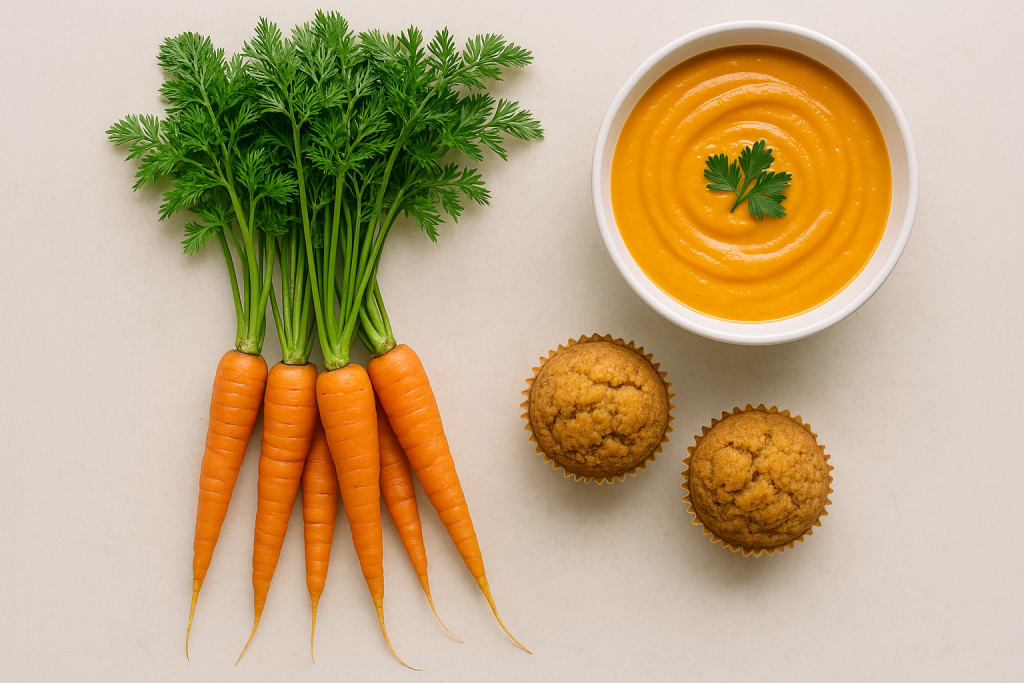
Health & Happiness, Straight from the Soil
Carrots are packed with vitamins A, K, and antioxidants, making them a smart addition to a healthy diet. But beyond that, the act of growing them nurtures mental wellness—calming the mind, reducing screen time, and encouraging outdoor activity. Gardening together as a family not only improves physical health but deepens emotional bonds.


